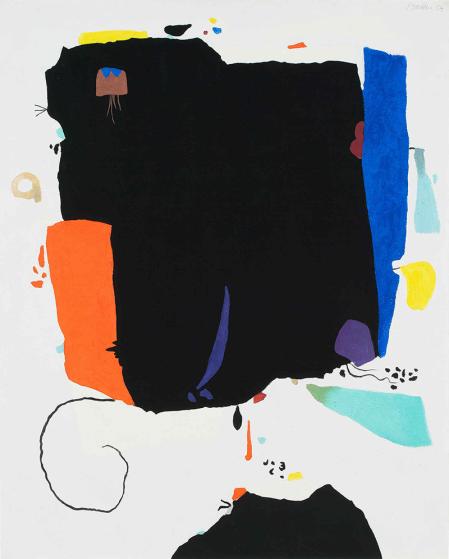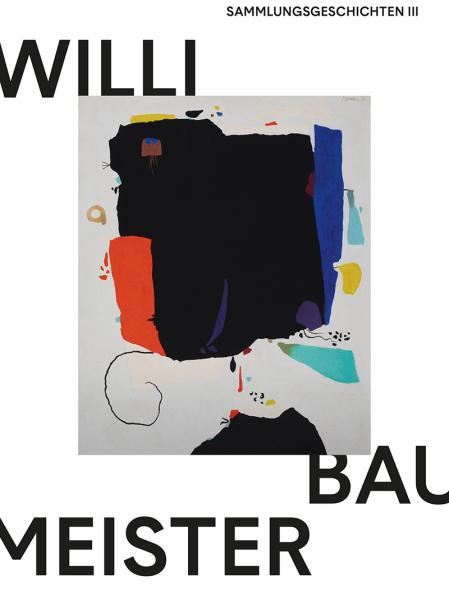Willi Baumeister at Museum Folkwang
As part of the new exhibition format Collection Stories, the Museum Folkwang is showing the presentation Willi Baumeister at Museum Folkwang. Signs of Time. The occasion for the launch of the new format is the new acquisition of the painting Montaru 2d (1954) by Willi Baumeister in 2023. It complements the existing collection with an important major work from the last creative period. The exhibition tells of the eventful history of Baumeister's works in the collection of Museum Folkwang.
Willi Baumeister (1889–1955) was one of the few German artists to achieve recognition beyond the national art scene as early as the 1920s and to continue his work with equal vigour in the period after the Second World War. He was a painter and designer, material researcher and art theorist, and not least one of the most influential defenders of non-objective painting. From 1946, he was the first professor to teach abstract art at the Academy of Fine Arts in Stuttgart. Since then, he has been regarded as a role model for the generation of non-objective artists who characterised the art scene in the 1950s.
Since the late 1910s, Baumeister's oeuvre has developed its very own abstract drawing language, which the artist realises in a diverse series of works. The Sport and Eidos pictures, the so-called Line Walls, illusory reliefs and the Safer and Montaru series bear witness to this. As early as the late 1920s, Museum Folkwang began to build up a collection of these works, which, however, fell victim to the Nazi "Degenerate Art" campaign in 1937. The group of works was systematically rebuilt from 1955 onwards. It includes representative paintings from the period of internal exile. After 1945, Baumeister's art symbolised the continuity of abstract art in Germany against all odds. In the public perception, he has embodied the anti-totalitarian attitude and the new (West) German democracy since this time.
The collection presentation Signs of Time shows how Baumeister's abstract working method frees him from the rules of mimetic art and leads him to compositions that use the painterly elements of form, colour and material autonomously. "The work of art builds itself up in a different logic. It becomes an organism that is not based on imitation, but on what is called creation," described Baumeister himself in 1952.
Until 2023, Baumeister's last phase of work was represented exclusively by graphic works in the Museum Folkwang collection. This will change with the new acquisition of the paintings, Montaru 2d. The purchase was made possible thanks to the generous support of the Willi Baumeister Foundation and financed by the Folkwang-Museumsverein. The Museum Folkwang's collection now comprises four paintings, five individual graphic sheets, an illustrated book and a portfolio of twenty collotype prints by Willi Baumeister. The presentation shows the museum's own holdings together with loans from a German private collection.
Admission is free.
PUBLICATION
The exhibition is accompanied by the publication WILLI BAUMEISTER in the series COLLECTION STORIES.
Text: Ilka Voermann
Euro 5,00
Available at the Museum Folkwang.

SAMMLUNGSGESCHICHTEN III
Willi Baumeister
Museum Folkwang (Hrsg.)
Text: Ilka Voermann; Vorwort: Peter Gorschlüter und Nadine Engel
Essen, 2024
Share on




